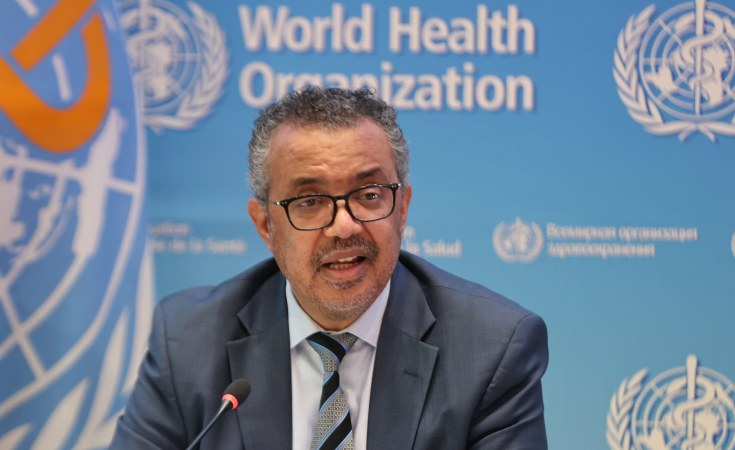Geneva — World Health Organization Director-General Tedros Adhanom Ghebreyesus has fought hard for vaccine equity in the battle against COVID-19. On Friday, a visit to an mRNA vaccine technology transfer hub in South Africa will add a piece to the jigsaw puzzle which has to be built to achieve that.
Tedros will join Belgium's Minister of Development Cooperation, Ms Meryame Kitir, on a high-level visit to Cape Town on February 11 and 12.
There they will visit the mRNA vaccine technology transfer hub and other facilities involved in the response to COVID-19 and the protection of public health.
WHO's chief scientist, Dr Soumya Swaminathan, explained to journalists at the United Nations on February 4 the choice of mRNA as the first technology transfer hub after earlier welcoming the rapid development of vaccines against the pandemic.
Chronic vaccine inequity resulted "to a large extent... because of the lack of manufacturing capacity and facilities," and getting medicines to where they are needed, said Swaminathan.
"And therefore, it became very obvious that the countries that were suffering the most were those that were dependent entirely on imports, which did not have their own [resources], from diagnostic tests to gloves and oxygen and PPE all the way to vaccines," said Swaminathan.
Vaccines a critical tool
"Vaccines are obviously a critical tool in ending this pandemic."
The WHO believes that one global hub could serve many spokes and many recipients in many countries with vaccines.
"And then we had criteria for how that hub would be selected. We had a technical committee that actually screened applications and looked at all of the criteria. And then we selected South Africa because of the strengths that they brought in their proposals," said the WHO chief scientist.
Dr Sylvie Briand, WHO's director of Pandemic and Epidemic Diseases, said even if developing countries can sometimes spend millions on vaccines, their efforts can fail if they don't have the capacity to maintain a "cold chain" at airports.
"So, we lose some vaccines at this stage. And there is the issue of the distribution of those vaccines across the country. And so it requires us to have a good cold chain," said Briand, speaking specifically of the Pfizer-BioNTech COVID-19 vaccine, which needs to be kept in exceptionally cold storage.
"We really hope that this transfer of technology would be a game-changer," Briand said at a press conference for UN journalists on Wednesday.
When South Africa was named as the site of the hub in June last year, President Cyril Ramaphosa said: "The COVID-19 pandemic has revealed the full extent of the vaccine gap between developed and developing economies, and how that gap can severely undermine global health security.
"This landmark initiative is a major advance in the international effort to build vaccine development and manufacturing capacity that will put Africa on a path to self-determination."


